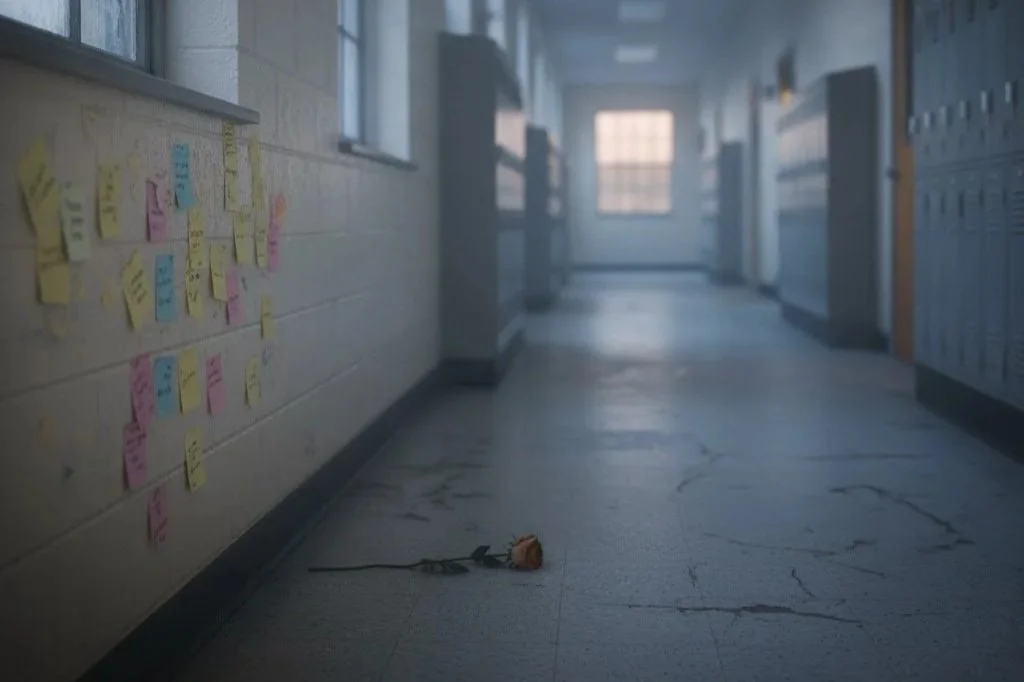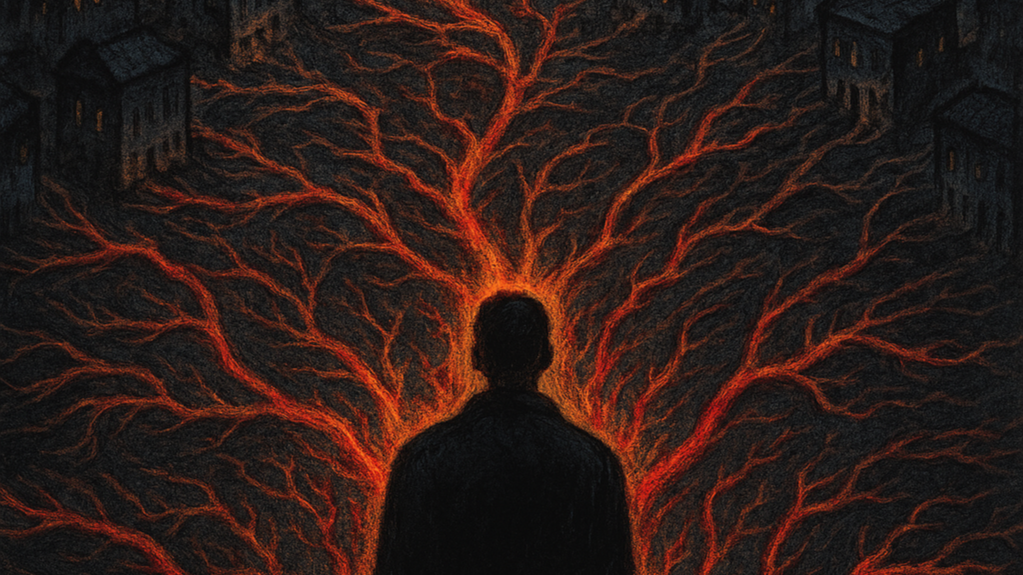The Bridge Charter: A Case of Order vs. Appetite
Testimony of the Defence: Case T-1442 v. The Gruffs
The Troll, Reginald T. Bismuth, stands in the defendant’s box. He is dressed in an ill-fitting tweed coat, clutching the "Bridge Charter." He speaks in a voice that is pompous and whining.
Your Honour, members of the jury, I stand before you today as the victim of a savage attack, orchestrated by a trio of opportunists who believe their personal desire trumps the rule of law. I am the victim of open borders enthusiasm, if you will. My name is Reginald T. Bismuth. For three decades, I have been the official Steward of the Bismuth Bridge. My job - and it is a burden, I assure you - is to manage access to the Finest Meadow. The prosecution keeps mentioning "lush grazing." Let me be clear: the Meadow is not a charity. It is a limited resource designated for those with the appropriate documentation and financial means. My bridge isn't a barrier; it is a necessary control point.
Now, let's examine the so-called "plight" of the first Gruff. He approaches, clip-clop, clip-clop. I politely request the standard transit fee, as per Article III of the Bridge Charter - a shilling; and what is his response? He begins to wail. He claims he is small and weak. He says he has nothing. He tells me there is no grass left on his side of the river. Your Honour, that is not my problem! That is a problem of local governance on their side of the river! My job is to protect this side! I allowed him to pass on the dubious promise of future payment from his kin - a compassionate, yet fundamentally unsound, exception on my part. I bent the rules for him!
Then came the second one. Same sob story. This was a clear chain migration tactic. They exploit our humanitarian flexibility to flood the system.
And finally, the ringleader. The Great Big Billy Goat Gruff. He arrived with no paperwork, no funds, and a clear intent to violate the border by force. When I, executing my sworn duty, stood firm, he launched a vicious, unprovoked attack! He headbutted a sitting official, destroying critical infrastructure and plunging me into the water! My official stewardship spectacles - necessary for reviewing all transit documents -were ripped from my face and lost to the murky depths!
The media paints me as the villain, the "hungry Troll." But who is truly hungry? The goats are hungry for our resources! I am merely asking them to follow the rules, to respect the process, and to wait their turn for proper, documented entry into a resource that is not, frankly, theirs to begin with! I request that the charges against me be dropped. Let this court send a clear message: Order matters! Documentation matters! This bridge is closed to those who seek to undermine our process for their own self-serving appetite!
The Prosecution's Rebuttal: Lies Under the Bridge
The Prosecutor, Ms. Fiona Capra, approaches the bench, gesturing contemptuously toward the Troll.
Your Honour, members of the jury. We have just listened to Reginald T. Bismuth spin a web of self-pity and bureaucracy so thick, one can hardly see the truth of the matter. The Defence’s argument hinges on three claims: order, limited resources, and the sacred nature of a shilling.
This is not a legal framework; it is a private toll booth disguised as legislation. And what is the true purpose of this "order"? To prevent these goats, who are clearly fleeing starvation, from reaching a meadow that is, according to local census reports, vastly under-utilised. Mr. Bismuth isn’t preserving order; he’s monopolising access to grass! The Troll claims to be a steward protecting a "fragile ecosystem." I put it to the jury that the only resource Mr. Bismuth is protecting is his own petty income stream.
When the Little Gruff told him, "There is no grass left on our side of the river," that was an implicit plea for asylum from a devastating famine! What was the Troll’s response? "That is not my problem!" He has the audacity to stand here, talking about his precious shilling, while three living, breathing creatures were facing certain starvation.
Finally, let us address the charge of Chain Evasion. The Troll allowed the first two goats to pass, claiming it was an act of "compassion." We know the truth: he wasn't being compassionate; he was being greedy. He kept letting them pass because each goat promised a bigger, fatter one was coming. He was waiting for a better bribe! When the Great Big Billy Goat Gruff arrived, he saw the barrier to his family's survival was a cruel, self-serving tyrant. His actions were not "felony assault;" they were an act of necessary self-defence against a man who was using a piece of infrastructure to dictate who lives and who starves. The Troll is not a public servant; he is a gatekeeper of cruelty. He is guilty of moral negligence, and his whining about his spectacles is a distraction from the fact that he was preventing survival for the price of a shilling.
The Judge's Summation
The Judge, a wise old owl in a barrister's wig, addresses the jury.
Members of the jury, you have heard the evidence. The facts are not complex, but the legal and moral interpretations you must make are profound. You have a solemn duty, and that is to distinguish between law and justice.
The Defence argues he was enforcing the Bridge Charter and was assaulted by those who refused to follow the rules. However, The Prosecution argues that the Charter is merely an instrument of tyranny, and the assault was an act of desperation and self-defence.
I must instruct you that, technically, the Bridge Charter was the established regulation. By the strict letter of the law, a violation occurred. However, you must weigh this against the context. You must consider whether a rule that forbids access to life-sustaining resources, when the alternative is starvation, can be considered just or equitable. Does the sanctity of a shilling outweigh the sanctity of life?
Mr. Bismuth claims he was protecting a "limited resource." You must decide if his actions were born of genuine environmental stewardship, or of self-interest and the desire to hoard. We're not asking you to rip up the rulebook entirely, but to interpret it with humanity. Yes, times are tough, but systems like this endure. A decision today might not be easily overturned, and should we not insist on the fundamental ethics of sharing when times are plentiful? Remember this: what affects the Gruffs today could impact you tomorrow.
Your verdict will send a powerful message. If you find for the Defence, you will affirm that order and procedure must be respected above all else, even the direst need. If you find for the Gruffs, you will affirm that compassion and the right to survive are higher laws, and that systems designed solely to exclude the desperate are morally bankrupt.
The question before you is not simply whether a fee was paid, but whether a troll who used an arbitrary regulation to bar the hungry from sustenance is entitled to protection when his victims finally push back.
Retire now, consider the evidence carefully, and may your conscience be your guide.
























In a kingdom where the King declares war on numbers, communicates with pineapples, and maps military strategies on breakfast cereals, young Peabody might be the only sane person left—though that's not saying much when you live in a treehouse held together by duct tape and stubbornness, fifty feet above where the ground used to be before your grandmother accidentally knitted it into a cushion. When the Princess vanishes and the palace descends into weaponised chaos involving backwards bagpipe music, a philosophising baked bean drowning in custard, and a teddy bear whose broken watch hums Andrew Lloyd Webber as a form of prophecy, Peabody is summoned to solve the mystery using his greatest talent: the ability to listen without screaming about root vegetables. What he discovers is far more dangerous than any kidnapping—a clever girl who's had quite enough of the madness, a machine that translates nonsense into sense, and the revolutionary idea that perhaps, just perhaps, a kingdom shouldn't be run like an elaborate joke that's forgotten its punchline.